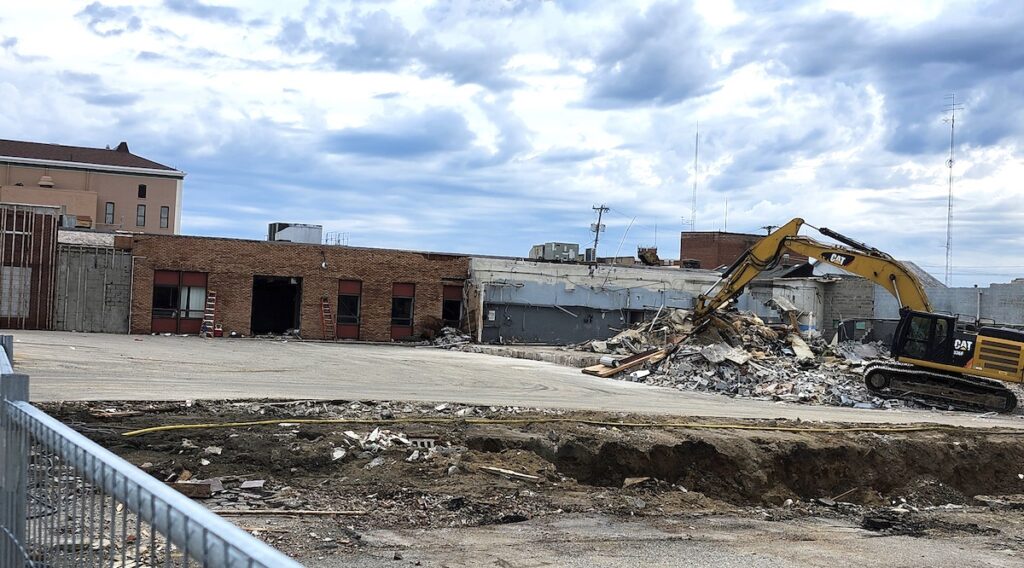
From the Winter Street riverfront to the Tecumseh Products site, there have been a whole bunch of projects in the news recently that give rise to the question: Should governments really be in the real estate business?
Everybody is going to have their own take on that question, but here is ours: In an ideal world, the answer would be no. But we don’t live in an ideal world, and sometimes government action is the only way to make something happen.
This might not be the most popular opinion, but hear us out.
We understand the arguments against government getting involved in real estate development. One of the most compelling ones may be that government simply isn’t very good at it. For example, about 25 years ago, the city of Adrian purchased the Witt Farm parcel on the north side of town with the goal that it would be used for future development. In all that time, only one deal — the Gaslight Village assisted living facility — has actually come to fruition. The proposed Sam Beauford Woodworking Institute campus is exciting and holds a lot of promise, but it’s hard to deny that one successful deal in 25 years isn’t a great track record.
At the same time, you have to consider the alternative.
Take the Winter Street riverfront project, in which the city of Adrian has assumed responsibility for demolishing the former Daily Telegram office and several other vacant buildings to — hopefully — make way for a future housing development. Or take the Products on Evans project, which has been awarded a $5 million grant through the state of Michigan to turn a vacant, two-story office building that was once the Tecumseh Products headquarters into a 59-unit apartment community.
We admit this doesn’t always feel right. It feels a little bit like the government picking winners and losers — because after all, what business owner wouldn’t love it if somebody else came along and paid for a big chunk of their startup costs?
But then you have to ask: What would happen if a state or local government didn’t step in?
Without the city stepping in and preparing the Winter Street riverfront area for development, it’s likely that nothing would happen at all. The buildings would keep falling into worse and worse disrepair, becoming eyesores that would both cause a safety problem and hurt the community’s image.
No developer would even look at the site, because it would always be cheaper to find a parcel of clean, vacant land somewhere on the outskirts of town.
A completely laissez-faire approach to development — no government intervention at all, let the free market take its course and let the chips fall where they may — would result in the hollowing-out of our historic downtowns. We’d have new developments out on the fringes, but in the heart of our communities, we would have nothing but ruin and decay.
That’s why we can’t endorse the idea that government should just step aside. It’s also why, when it comes to the Tecumseh Products factory site just south of the future Products on Evans, we believe that Lenawee County must proceed thoughtfully and not just try to rid itself of the property as quickly as possible.
A related topic is that of the Adrian Inn, which the city bought for $800,000 in 2022 and recently agreed to sell to Adrian College for $250,000.
Buying a property and then selling it three years later for less than a third of the price sounds like a terrible investment. And, yes, it would have been … if it had been intended as an investment at all. But it wasn’t. The Adrian Inn was purchased to help make sure that people who were displaced from Riverview Terrace when it needed major structural repairs would have a place to live. It was purchased to help keep some of Adrian’s most vulnerable residents from suddenly becoming homeless.
So it wasn’t a financial invesment — but it was an investment of a different kind. It was an investment in our people, and in being a compassionate community.
Some folks like to say that government should run like a business, but that cliche ignores an important truth. Government is not a business, because they have two very different goals. The purpose of a business is to make a profit — but the purpose of government is to serve the people.
So yes, sometimes there is a role for government to play in real-estate development. Some may dislike this idea on ideological grounds, but the results are what matter. Government can be a tool for doing good in our communities, and if we embrace that tool when appropriate, our communities will benefit.

